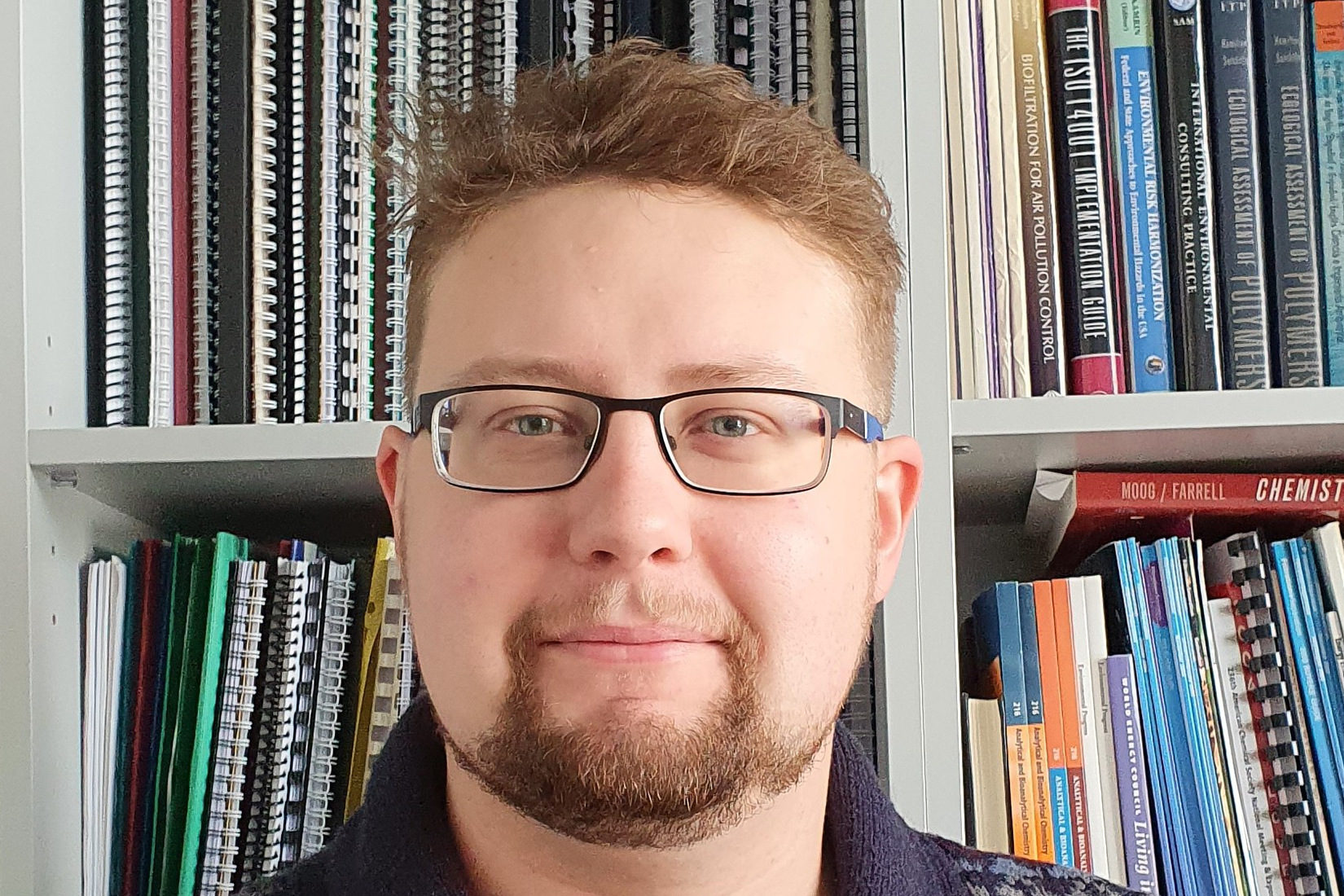The public perception of waste can be quite negative. Yet, it is a field of work to which Markus Raudkivi has devoted himself.
– Waste has for me always been a topic where so much can be done. Scientifically, wastewater treatment is especially interesting. A lot of research is always going on trying to come up with new and improved solutions, driven by both the desire to save money and to make the processes more efficient.
Markus Raudkivi is an Estonian researcher, positioned at the University of Tartu. He was involved in the Baltic Leadership Programme on PFAS, a programme that brought together experts, policymakers and other stakeholders in the Baltic Sea region to phase out the usage of PFAS which are highly hazardous substances.
– We live in a very important localized bubble – the Baltic Sea – one of the largest brackish inland seas and we share it between nine very different countries. As all of our economies are tied to this sea, I think transnational cooperation is the only way to achieve a shared development of the region.
– Hazardous substances are a perfect example of a reason for cooperation – when any of the nearby countries allow the use of an aquatically very toxic chemical, we all reap the “reward”, Markus Raudkivi continues.
Seven years ago, Markus Raudkivi got involved in a project on wastewater treatment technologies at the University of Tartu. He has been there ever since and is currently about to finish his PhD.
– Last autumn was an especially busy time for me with much work to be done in multiple different projects. We are, for example, involved in an EU funded platform project called BSR WATER. This platform brings together various actors in the water sector and through sharing solutions developed in the region we hope to shape regional recommendations. In this platform, we work closely together with HELCOM to prepare a regional palette of solutions for nutrient recycling, as well as develop a circular cooperation model for water, sludge and energy. As I’m also giving lectures for the master’s students in our university and supervising two master’s theses, juggling all of this with the pandemic in the background has been quite an interesting experience!
In his work, Markus Raudkivi has mostly focused on heavy metals and pharmaceutical residues.
– Lately, however, hazardous substances in wastewater and sludge have introduced themselves in my daily work, he says smiling.
The Baltic Leadership Programme on PFAS, started in 2019 and was extended during 2020. Markus Raudkivi says that from an Estonian and a Baltic perspective the leadership programme was highly relevant.
– We all still have some accumulated pollution issues from the Soviet times. There is no general consensus yet which substances from the PFAS group to measure and with which methods. The monitoring is complicated as well. We hope the ongoing development of both the analytical methods and legislation in the EU will solve these problems.
Markus Raudkivi says that the most important thing he brings with him from the leadership programme is the understanding of the situation in other sectors.
– In many projects and networks, we stay with the experts of our own field. That can sometimes blind us from seeing the larger picture. In the Baltic Leadership Programme on PFAS, experts from agriculture, military, remediation, chemical analysis and wastewater sector came together to understand the issues we face in our respective fields.
The University of Tartu is currently developing a larger PFAS related project with seed money from the EU’s Interreg Baltic Sea Region Programme: EMPEREST. The project will seek to provide an overview on the current situation regarding sources and pathways of PFAS in the Baltic Sea region and develop viable solutions for the wastewater sector to deal with the issue.
Markus Raudkivi says that the network and the actual information they acquired during the many workshops and discussions in the Baltic Leadership Programme have given them a substantial foundation to build a larger project upon.
– We also invited the BLP PFAS expert network to our first larger project development workshop in the beginning of 2021. Preparing a larger PFAS-related project for the near future is very much dependent on our own international personal connections, which I think the Baltic Leadership Programme on PFAS was excellent in providing.
– The wonderful thing is that other participants from the programme are actually interested in what we are doing and want to take part in future work – we don’t need to search relevant partners as needles in a haystack! Markus Raudkivi concludes.
Facts
Per- and polyfluoroalkyl substances (PFAS) are highly polluting chemicals which are used in many products e.g firefighting foams, packaging, ski waxes etc.
The Baltic Leadership Programme on per- and polyfluoroalkyl substances (BLP PFAS), which started in 2019 and was extended during 2020, aimed at raising awareness and knowledge of PFAS sources, uses, accumulation and impacts in the Baltic Sea Region. It also aimed to develop a transnational expert network for handling PFAS in the Baltic Sea region environment.
BLP PFAS was commissioned by SI in close cooperation with the Swedish Environmental Protection Agency in its capacity as Policy Area Coordinator Hazards of the EU Strategy for the Baltic Sea Region. The Swedish Environmental Research Institute took over the coordination of this expert network by the end of the programme and the PFAS professionals have been included in the project ZeroPFAS.
